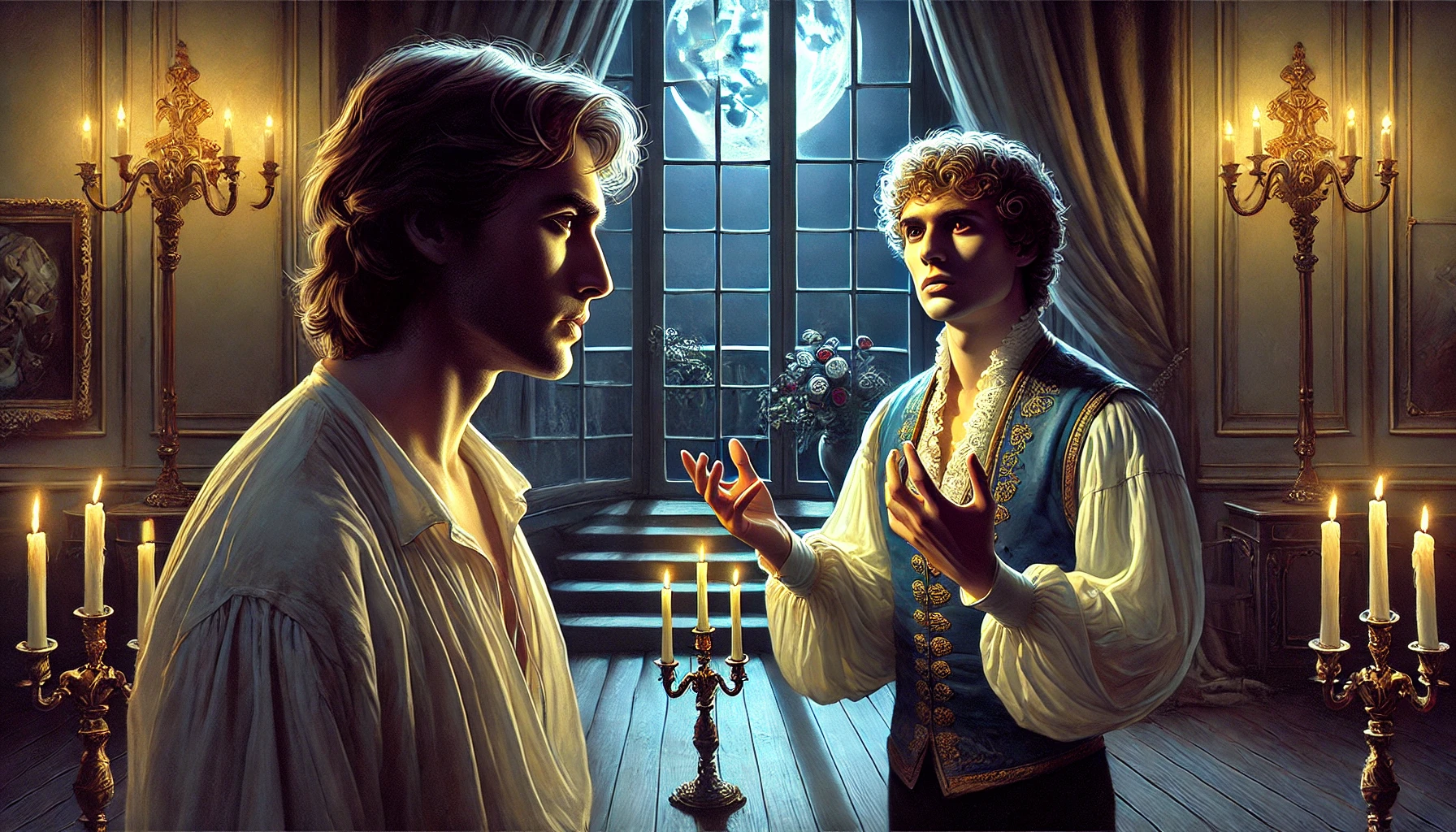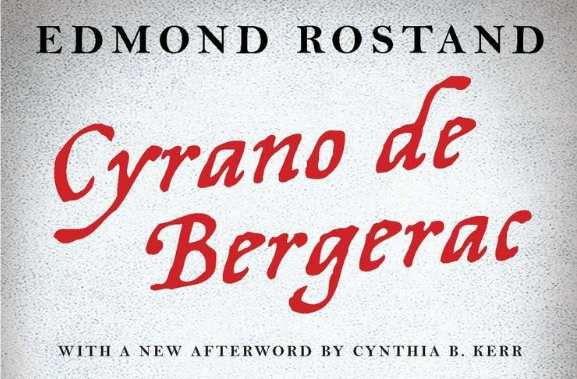Scene 2. XI.
byScene 2. XI. reveals a moment of profound emotional complexity, where love, self-doubt, and deception intertwine to shape the characters’ destinies. In this chapter, Christian, feeling inadequate and insecure about his ability to win Roxane’s heart with his lack of eloquence, turns to Cyrano for help. His fear that his love will be unreciprocated without the right words pushes him to seek Cyrano’s assistance, despite knowing that Cyrano himself harbors deep, unspoken feelings for Roxane. Cyrano, ever the generous soul but also driven by his own love, agrees to help Christian, motivated by a sense of duty and his own internal struggle. Though Cyrano’s heart aches with longing, he steps forward to guide Christian, blending selflessness with an undeniable desire to see Roxane happy, even if it means helping another win her affection.
In an unexpected gesture of vulnerability, Cyrano offers Christian a letter that he has already written—one that is both an expression of his love for Roxane and a testament to his poetic brilliance. The letter, filled with eloquent prose and impassioned words, becomes Cyrano’s offering to Christian, who is told that these words will capture the essence of his love, even though they come from Cyrano’s heart, not Christian’s. The irony of this situation is rich and layered, as Cyrano assures Christian that the words will move Roxane, even though they were crafted by a man who is secretly in love with her. This exchange, while centered around a deceptive act, also underscores Cyrano’s profound, unrequited love and his willingness to help Christian despite the personal cost, highlighting the complexity of his emotions. Christian, deeply moved by Cyrano’s gesture, embraces him, cementing their complicity in the ruse driven by love, sacrifice, and hope.
As the scene progresses, the intricacies of Cyrano’s internal conflict become increasingly apparent. His love for Roxane is the driving force behind his actions, yet he conceals these feelings under layers of humor, wit, and bravado. Cyrano’s selfless willingness to help Christian at the expense of his own happiness illustrates the depths of his devotion, while also revealing the struggle he faces in concealing his emotions. Christian, on the other hand, finds himself torn between his desire for Roxane’s affection and his moral discomfort with the deceit that is unfolding. This chapter serves as a turning point in their relationship, setting the stage for the emotional turmoil and complications that will inevitably follow. The juxtaposition of Cyrano’s selflessness and Christian’s growing unease provides a poignant commentary on the complexities of love and loyalty, setting the tone for the continuing entanglement of their fates.
The tragic irony of this chapter lies in the fact that Cyrano is using his words to bring Christian closer to Roxane, even though it means sidelining his own heart’s deepest desires. His actions reflect the ultimate sacrifice—helping another man win the love of the woman he adores. The complexities of this love triangle are evident as Cyrano’s feelings for Roxane remain hidden behind a veil of jest and self-effacement, while Christian, unaware of the true author of the words, begins to fall deeper in love with Roxane through Cyrano’s eloquent expressions. This dynamic creates an emotional tension that drives the narrative forward, as each character grapples with their own desires, insecurities, and the consequences of their actions.
At the heart of this chapter is the theme of unrequited love, where Cyrano’s selflessness becomes both his strength and his tragedy. His willingness to help Christian, despite his own feelings, reveals a profound sense of duty and love that transcends personal desire. This sacrifice sets up the complex emotional landscape that will unfold throughout the story, as the characters navigate the intricacies of love, loyalty, and identity. Cyrano’s actions, though rooted in generosity, are ultimately bittersweet, as they highlight the painful reality of his unspoken love for Roxane and the lengths he will go to in order to see her happy, even if it means placing his own heart on the backburner.
This scene also highlights the power of words and language in shaping relationships and emotions. Cyrano’s mastery of language allows him to craft the perfect expressions of love for Christian, despite the fact that the words are not his own. This manipulation of language, though driven by Cyrano’s selfless intentions, also raises important questions about authenticity, deception, and the role that communication plays in love and connection. Through the lens of Cyrano’s actions, the play explores the idea that love is not just a matter of feeling but also of expression, and the complexities that arise when those expressions are layered with deceit and sacrifice.


